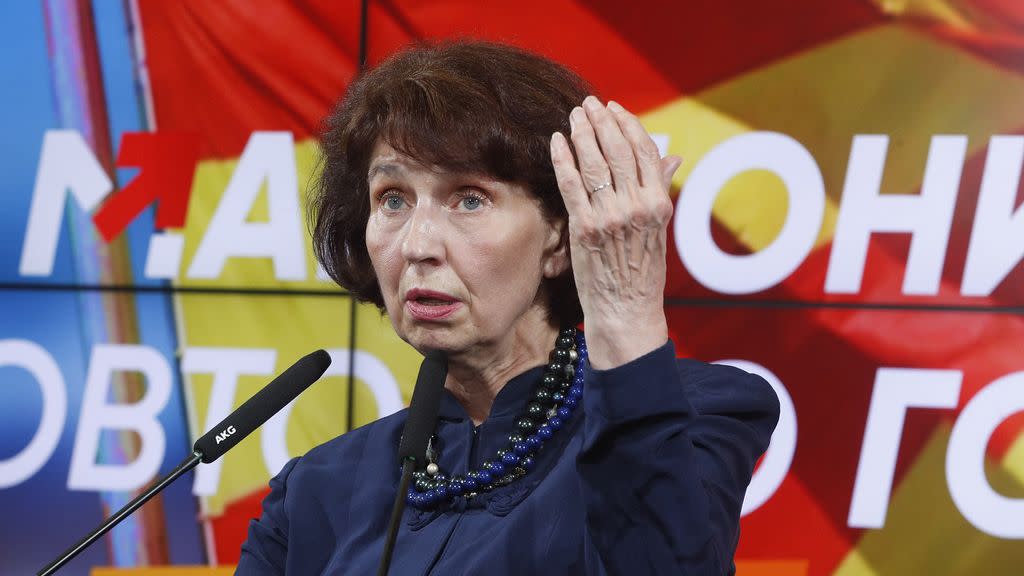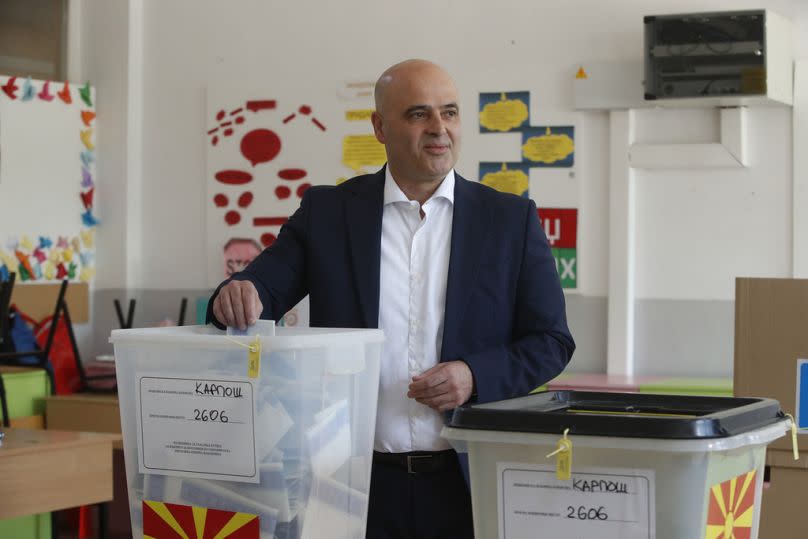North Macedonia elects first woman president as centre-left crumbles

While North Macedonia marked a historic milestone on Wednesday by electing its first female president, the ruling centre-left suffered an unprecedented loss in both presidential and parliamentary polls.
Gordana Siljanovska-Davkova, a 70-year-old law professor supported by the nationalist conservatives, won with nearly 65% of the vote in the presidential runoff.
Reflecting on her win, Siljanovska-Davkova emphasised the importance of this milestone for women and pledged to advocate for reform alongside them.
Meanwhile, Stevo Pendarovski conceded defeat after securing just over 29% of the vote. Siljanovska-Davkova gathered support from the right-wing VMRO-DPMNE party, which banked on public dissatisfaction with the slow pace of EU integration and economic stagnation.
Celebrations scotched by thunder and lightning
In the parliamentary race, VMRO-DPMNE and its coalition led with nearly 43% of the vote, while the long-standing SDSM-led coalition struggled to maintain second place.
However, celebrations in the capital, Skopje, were hit by a thunderstorm, causing power outages. The conservative landslide win sets the stage for negotiations over parliamentary control.
SDSM leader Dimitar Kovachevski acknowledged his party's defeat and announced his resignation, clearing the path for new leadership.

The election campaign focused on North Macedonia's EU accession progress, rule of law, corruption, poverty alleviation, and economic growth.
VMRO-DPMNE leader Hristijan Mickoski emphasised fighting corruption as a priority for the incoming conservative-led government. The electorate's discontent highlighted the urgency for accountability and reform.
“Every last person who committed a crime and committed corruption will be held accountable,” he said. “The people have taught the government its most important lesson and saved their country ... We have regained hope and tonight we have reason to celebrate.”
VMRO-DPMNE has made a comeback after suffering a major blow to its popularity following a series of scandals by its former leader, Nikola Gruevski. Gruevski fled North Macedonia in November 2018 and has been living in exile in Hungary, dodging several convictions for corruption, abuse of power and inciting violence against his political opponents.
Despite being the Western Balkan region's early frontrunner to join the EU, North Macedonia has encountered challenges on its path to membership since 2005, mostly caused by pushback from its neighbours.
A Greek veto over the country's name, followed by another block by Bulgaria over history and language claims, halted Skopje's negotiations with Brussels for decades.

 Yahoo News
Yahoo News 
